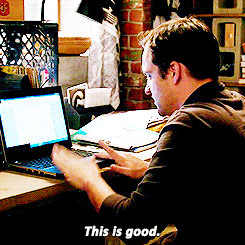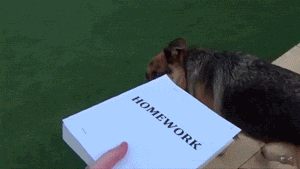Text
https://t.me/TonAirdrop_ibot?start=r08430323085
https://t.me/TonAirdrop_ibot?start=r08430323085
#crypto#cryptocurrency#bitcoin#ethereum#solana#dogecoin#shiba#inu#blockchain#nft#web3#defi#cryptoart#altcoins#binance#ripple#xrp#cardano#litecoin#polygon#metaverse#bitcoinnews#cryptoexchange#cryptoairdrop#cryptoeducation#cryptotrading#cryptoinvestor#cryptomining#cryptonews#cryptoworld
2 notes
·
View notes
Text
https://t.me/TonAirdrop_ibot?start=r08430323085
https://t.me/TonAirdrop_ibot?start=r08430323085
1 note
·
View note
Text
lynkz.click/smallof?invite=053G7
lynkz.click/smallof?invite=053G7
6 notes
·
View notes
Text
lynkz.click/smallof?invite=053G7
lynkz.click/smallof?invite=053G7
12 notes
·
View notes
Text
Très vs Trop vs Super vs Vraiment in French
Let's set the scene : You're talking to your friend, she shows you her new art piece and you say "C'est très beau !" to say "It's so pretty !". And for a few seconds she looks a bit disappointed.
(This might sound a bit exaggerated but if a friend of mine, a native French speaker*, says "c'est très beau !" to me, I might assume that :
they're saying that ironically because it's such a strange way to say "it's so pretty !".
they think that I'm under the age of 8 and I'm bothering them - "c'est très beau, now go play with the other children")
(If your friend knows you're not French, she'll understand what you mean, don't worry)
So then, what should you say ?
First, let's take a look at "très"
1. Très // Very :
If you are writing a thesis/sending an email to French clients/talking to your boss etc…using "très" to say "very" is the way to go.
BUT we don't actually use it that much orally in the day to day life in exclamative sentences such as "It's very + adj ! "
Note 1 : Surprisingly if you want to say "It's not very + adj ! " you can still use "très".
Exemple n° 1 et 2 : "C'est pas très bon !" // "It's not very tasty !" "C'est pas très pratique ! " // "It's not very practical !"
In text messages or orally, whenever you want to say "It's very + adj !" I would suggest you forget about "très" and use the other expressions I'll mention in this post. Note 2 : You cannot use the word "très" with every adjective ! - La maison est très belle. La maison est très magnifique. - La soupe est très bonne. La soupe est très délicieuse. [This website lists adjectives you can use to avoid saying "très". The adjectives on the left can be used with "très", the ones on the right cannot.]
2. Trop // Too :
"Trop" can be translated as "too" or "too much"
Exemple n°3 : "Mon café est trop sucré". // "My coffee is too sweet"
BUT NOW. If we go back to our great example : Your friend shows you her art piece. A possible answer is :
"C'est trop beau !" (lit. translation :" it's too pretty").
"C'est + trop + adj ! " is a very common way to say "it's very + adj ! ". Note 1 : It's quite informal ! Be careful whom you use it with !, (I was scolded as a child for using it)
Note 2 : This only works with the adjectives mentionned below ! If you use any other adjectives like "hot" for example : "l'eau est trop chaude" will mean that the water is too hot. (I guess you could also think of "trop" in this context as "so") Note 3 : "Trop" can also be used in the following structure : "Subject + [être] + TROP + Adj" - Beau/belle : C'est trop beau ! // It's so pretty ! (C'est trooooop beau ! // It's soooo pretty ! ) Elles sont trop belles ! // They are so pretty ! - Cool : C'est trop cool ! // It's so cool ! Mon chat est trop cool ! // My cat is so cool ! - Chiant : (!!!bad word alert!!!) C'est trop chiant ! // It's so fucking annoying ! Mon frère est trop chiant. // My brother is such a pain in the ass. - Moche : C'est trop moche ! // It's so/very ugly ! Ce tableau est trop moche. // This painting is so/very ugly. - Bien : C'est trop bien ! // it's so great ! Ce film est trop bien ! // This movie is really great ! - Sympa : C'est trop sympa de ta part ! Merci ! // It's so nice of you! Thank you! Mes amies sont trop sympas ! // My friends are so nice !
Note 4 : Saying "c'est cool ", "c'est beau ", "c'est bien", "c'est sympa" sounds quite passive-aggressive in French. ("c'est chiant", on the other hand works perfectly on its own, don't worry) Note 5 : Those are the most common adjectives that you can use with "trop" . I cannot think of any other adjectives but there might be some more ! The use of "Trop" is really common but informal. What should you say if you don't want to say "trop" and don't want to use "très" either ? -> You can use "super" or "vraiment"
3. Super : You might have seen it translated as "Great". When used in the exclamative sentence "Super !" or before a noun , it does indeed mean "great". But if it is used before an adjective, it becomes synonymous with "really" or "very"!
Exemple n°4 : "Il fait super chaud dehors !" // It's really hot outside !
4. Vraiment : "Super" is a bit more formal than "trop" yet if you're talking to the big boss, "vraiment" would be better.
C'est trop beau ! < C'est super beau ! < C'est vraiment beau !
Note 1 : "Vraiment" literally means "truly". Yet, I feel like in some situations we use this one in French the way English speakers use "really".
Exemple n°5 : "C'est vraiment énervant, j'arrive pas à utiliser ce logiciel" // "It's really/truly annoying, I can't figure out how to use this computer program."
Note 2 : While "trop" and "super" are informal, you can use "vraiment" in both formal and informal settings.
Exemple n°6 : "T'es vraiment chiant !" // "You're really/truly a pain in the ass !" (You could also say "t'es trop chiant !" ou "t'es super chiant !")
5. A few more examples and 3 mores words to say "very"
Exemples n°7 et 8 : "Il fait super froid dehors aujourd'hui ! " // "It's really cold outside today !" "38 euros ? Putain, c'est super cher ! " // " 38 euros ? Fuck, that's really exprensive !" Some people also use "méga" "archi" or "giga" to say "very " , (those 3 are informal as well)
Exemples n°9 , 10 et 11
"Il fait méga chaud dehors ! " // "It's really really hot outside !" "J'ai archi faim !" // "I'm really really hungry" "J'ai giga soif !" // "I'm really really really thirsty" You can try this little test I made about this post here ! * from mainland France
398 notes
·
View notes
Text
Some French slang and familiar expressions:

Nouns
la bouffe = food une clope = a cigarette un pote = a close pal, a friend un gamin = a kid un mec = a dude, a guy mon mec = my man, my boyfriend une meuf = a chick, a girl; verlan for femme ma meuf = my girl, my girlfriend une go = a chick, a girl; from arabic un daron = a father; from old term for landlord une daronne = a mother un mytho = a (compulsive) liar —
Degrees and interjections
archi + adj = super/real + adj, so much “mais c'est archi nul” = “that sucks so much” genre = like “il est, genre, archi grand” = “he’s, like, super tall” grave = 1. legit, seriously, ‘dead’; 2. insane “t'es grave mec” = “you’re insane dude” “je suis grave fatiguée” = “I’m seriously/dead tired” —-
Abbreviations
mdr (mort de rire) = lol; lit., dead laughing hrsmt (heureusement) = luckily bg (beau gosse) = good-looking dude azi (vas-y) = let’s go —-
Verbs
se saouler = to get drunk souler = to annoy “elle me soule grave” = “she annoys me so much” kiffer = to like, to dig “je kiffe ce morceau” = “I’m digging this song” engueuler = to yell, to tell off, to chew out capter = to get, to understand “tu captes?” = “you got it? / you understand?” —
Expressions
avoir le seum = to be pissed partir en couille = to go to shit (vulgar) “c'est parti en couille” = “shit hit the fan” casser les couilles = to piss off (vulgar) faire chier = to annoy (vulgar) être chiant = to be annoying (vulgar) péter les plombs = to flip out, to blow a fuse se mêler de ses affaires = to mind one’s own business
205 notes
·
View notes
Text
Random writing tips that my history professor just told during class that are actually helpful
Download all your sources or print them so you can turn off your wifi
Give your phone to someone
Just. WRITE. Writing is analysing, you’ll get more ideas as you write. It doesn’t need to be perfect, for now you can just blurt out words and ideas randomly. You can fix it later.
Create a skeleton/structure before writing.
Stop before you get exhausted. It’s best to stop writing when you still have some energy and inspiration left, this will also motivate you to get started again next time.
Make a to do list
Work in bite sizes. Even if it’s not much, as long as you put some ideas on paper or do some editing.
Simple language =/= boring language, simple language = clear language.
Own your words. If they are not your words, state this clearly in the text, not just in the footnotes.
STOP BEFORE YOU GET EXHAUSTED. Listing it again because it’s easily one of the best tips a teacher has ever given me.
14K notes
·
View notes
Text


On Being Well Spoken
I recently received a request about posting something regarding being well spoken.
Something you need to realise is that you’re not going to become well-spoken overnight. You need to practice on people. You need to SPEAK.
I used to stutter so badly that I could barely speak a whole sentence.
Flash forward a few years. I pitched my start up in front of a crowd, I joined Model United Nations in high school and college, I’ve been invited to speak on my entrepreneurial experience by some top universities in my country. It’s taken a lot to get here. And I’m still not where I want to be.
1. Apps to track progress and help you get better at public speaking
An app that you can use: “Speeko.”
I used to use this, it is beginner friendly and you can improve your public speaking skills as well.
2. Use topic generators
Go online and look up a topic generator. Generate a random topic, video yourself speaking on that topic. Don’t give yourself time to prepare anything - read the topic and start speaking. Set a time limit - you’ll realise that speaking for even 2 minutes can be quite difficult at times.
Not only does this make you realise that you may have limited language skills, but it will also make you realise exactly where you’re falling behind. Note down things in a journal.
- is grammar the issue?
- Lack of vocabulary?
- Too many filler sounds?
- Knowledge gap?
This is also a great idea if you’re at an intermediate level of learning a language/ polishing a language. Do this everyday and maintain a diary on your improvement.
3. Reading out loud
Select a news article or any article. Read out loud, slowly and steadily. Pronounce every syllable calmly.
A two minute read should take 5 minutes to read out loud. That’s how slow you should go. Not more than 4-5 words per breath.
Your tongue needs to get used to different syllables and sounds. Practice will help.
4. Talk in real life
Talk to anyone and everyone whenever you can.
Ask your barista how their day is going.
Ask your work or university security if they’ve had a good day and if they ate today.
Chat with your taxi driver about their life. I always start with asking them if they are from the city we’re travelling in. Even if you’re from that city, act like a tourist. Where are the best eateries? The conversation eventually goes to personal questions. How many children do they have, and what do they do? What do they like about the city?
You’ll learn the art of small talk only through practice. No book or guide can actually prepare you. You have to practice, practice and practice.
5. Diaphragm breathing
Diaphragm breathing is very important. Look up some YouTube videos for reference. You essentially breathe from your tummy (stomach goes in and out; not chest going up and down). This is a great calming exercise too.
6. Stuttering tongue/ jaw exercise videos
These are great because they really do prep your jaw and tongue well. The videos could include tongue stretches, placing your tongue on your palette correctly, etc. Search on YouTube.
7. Body posture
You really need to work on your posture too. Sit up straight. Back, STRAIGHT. Chin up, shoulders relaxed. Something as simple as posture can change your level of confidence.
8. Pranayama
A yoga exercise for breathing. You can find a guided video on YouTube for sure.
9. Vocabulary
Invest your time in expanding your vocabulary. There’s enough apps and games that can help you with that, if you aren’t fond of reading. A sign of being well spoken is having great vocabulary.
Start by looking up the synonyms of everyday words.
“I’m upset”
- how many different words can you find for upset?
“I had a crazy day today”
- one can easily use “hectic”, “chaotic” “lively” instead
10. Idioms
Idioms, phrases, sayings - look up common idioms in your language of choice. Aim to use at least 3 new idioms on 3 separate occasions in a week while you speak. You need to understand when and where you can use the idioms in your vocabulary.
11. Knowing when to switch
You can’t talk like a 50 year old heiress to a 10 year old child; you need to get down to their level.
If someone is clearly not a native speaker and is struggling to put words together, don’t use difficult words around them.
If you’re meeting with someone high profile, refrain from using slang.
The best speakers know when to switch their level of language.
You can’t use one singular type of speaking with everyone. You need to understand that there is a time and place for everything - and you’ll be able to switch like a pro only when you actually speak and start gaining experience.
5K notes
·
View notes
Text
Hey did you know I keep a google drive folder with linguistics and language books that I try to update regularly
220K notes
·
View notes
Text
“If we’re both going to die I would like to have a lot of fun now, please, yes, I would like to talk with you a lot.”
— Wendy Xu, writer’s statement pub. in The Diagram: 12.4
752 notes
·
View notes
Text
“In a language neither of us knows, she is telling me she loves me, and I am repeating the sounds back to her, learning. It sounds like the heart trying to leave the chest.”
— Gabrielle Bates, from “Mothers,” Poetry (vol. 221, no. 2, November 2022)
465 notes
·
View notes
Text
Learning a language = learning a culture
To truly understand a language and the people speaking that language, you also have to make a conscious effort to learn about the culture and history of these people. I know that the cultures of the countries where a language is spoken can be very different (e.g. Mexico vs. Spain, France vs. all African states where French is spoken, and even England vs. Ireland vs. Australia), so these suggestions work best if you have a specific target country in mind.
Here are some ideas on where to start:
look at the political system of your target country/culture: how does it work? Who are the most important people right now? Is there a monarchy?
look at the (broad) history of your target country/culture: since when is it an official country? Has it been in any wars? If so, with who and why? Was this country ever colonised or a coloniser?
research the most popular TV shows from the last 20 - 30 years and watch some of them
find out the most popular sport of this target country/culture and the culture surrounding it
research the holidays and how they are celebrated and whether there are any special holidays & what they mean to your target country/culture
watch some movies and TV shows that were made in your target country/culture, so you can get insights into the everyday lives of these people and how they interact
watch/read some news of your target country to find out what’s happening there right now & what the most important topics are for them
research how the school & education system works
research how the healthcare system works
research the typical cuisine of your target country/culture
find out whether there is some kind of traditional wear, its history, and what it means to the people
find out whether there are any indigenous people living in your target country, what their history is, and how they are perceived/treated in the country’s society nowadays
are there any stereotypes about this country/culture? Research whether or not they are true and why they exist in the first place
find out whether there is some kind of traditional folk music. Listen to it and find out its history and what it means to your target country/culture
what are the main religions of your target country/culture and how incorporated are their practices in society?
are there any social divides in your target country/culture? If so, what are they based on?
how is your target country’s relationship to its neighbouring countries?
.
If you have any other ideas or suggestions, feel free to comment or reblog!
.
2K notes
·
View notes
Photo

Morning coffee ☕️~
1 note
·
View note
Text
romantic student things
meeting up in the library in the morning and idly chattering while planning the day
sitting together in silence while working but still touching elbows or knees and feeling the comfort of each other’s presence
comparing schedules to see when you can spend time together
helping each other understand an academic concept and then smiling and giggling because wow your s/o is so cute and smart and you are so proud of them
drinking way too much coffee and/or tea together
planning a date and then saying, “screw it, we are tired and i’d rather watch a movie and cuddle at your dorm”
being frustrated when life is busy but ecstatic once you get to spend time with them
chilling at campus cafes in between classes
finding time to spend even 20 minutes with each other because you miss them and want to catch up
feeling proud of them when they do well on a test
comforting them when they do poorly on a test
whining about school, then making out and feeling better
7K notes
·
View notes
Text
when you’re doing homework that’s due tomorrow

when you find out it’s not due tomorrow

4K notes
·
View notes